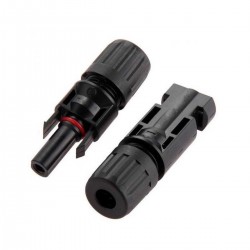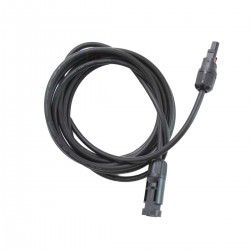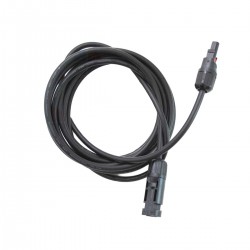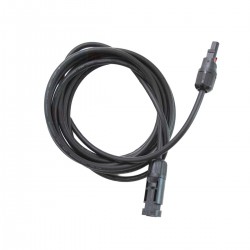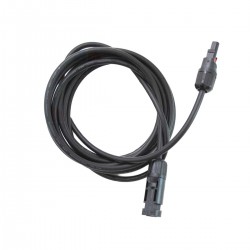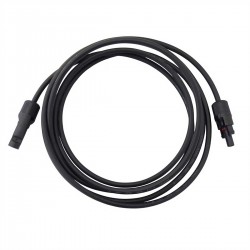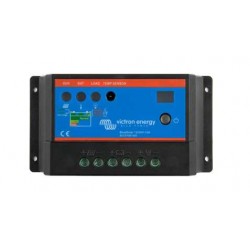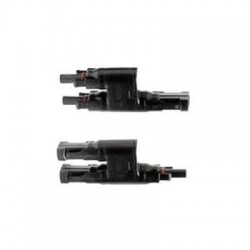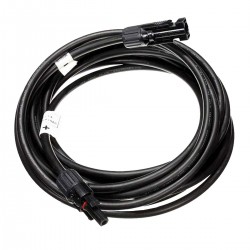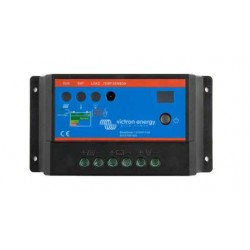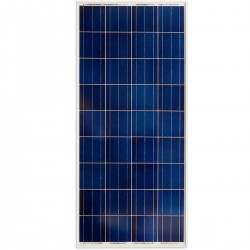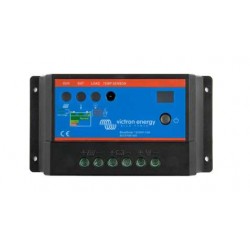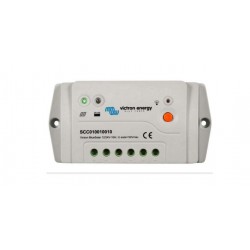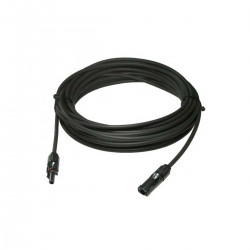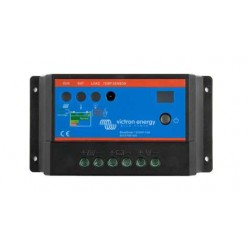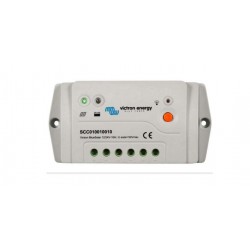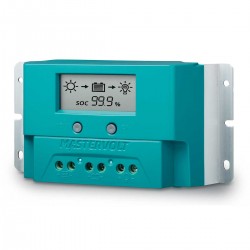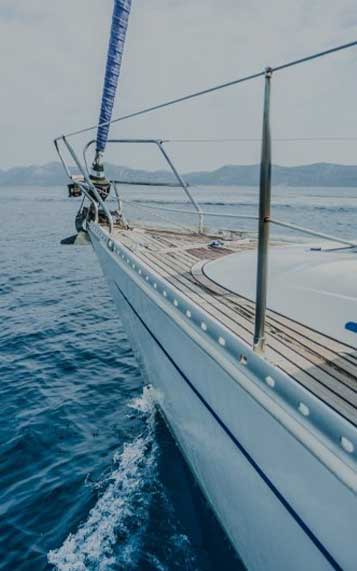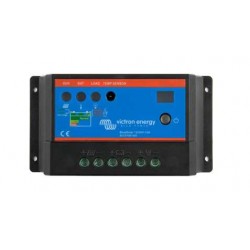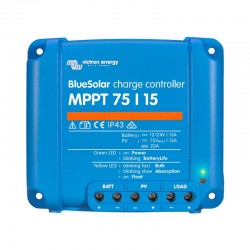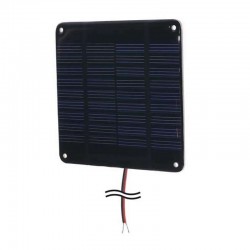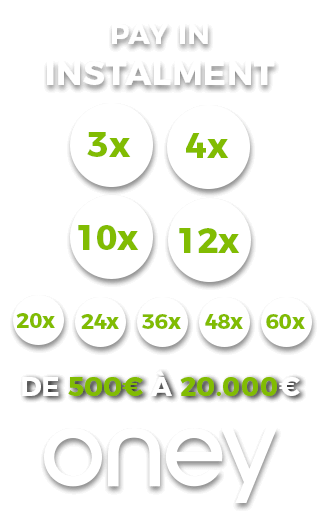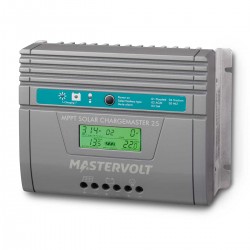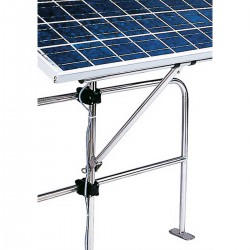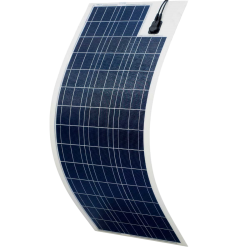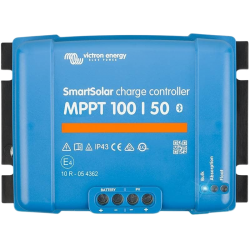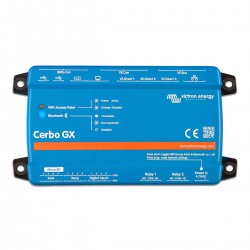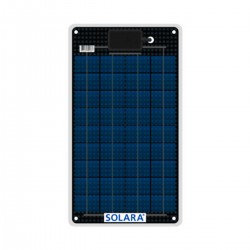Solar Panels
Solar panels for boats are devices used to generate electricity from solar energy. They are generally used on board boats to power electrical appliances and equipment, or to recharge batteries. Solar panels for boats can be mounted on the deck or roof of the boat to capture solar energy. There are rigid solar panels and flexible solar panels.
We use the term "solar panel", but the more appropriate term would be "photovoltaic panel", as these are mainly used to supply electricity and charge batteries. A photovoltaic panel is made up of a photovoltaic module. A module is made up of photovoltaic cells that produce direct current when they perceive light.
Today, solar technology is evolving enormously, and we're now able to have flexible solar panels, for example, which are very useful on boats, as they can be placed on uneven surfaces.
Solar panels are an excellent way of generating energy on board your boat and recharging batteries at low cost. We offer a selection of solar panels and charge controllers.
Discover our full range of solar panels, accessories, wiring, voltage regulators for your boat, solar panel + regulator kits at the best prices, on Comptoir Nautique.
- -€3.15
MPPT solar charge controller - auto detection. 12/24V - 25A
- -€18.35
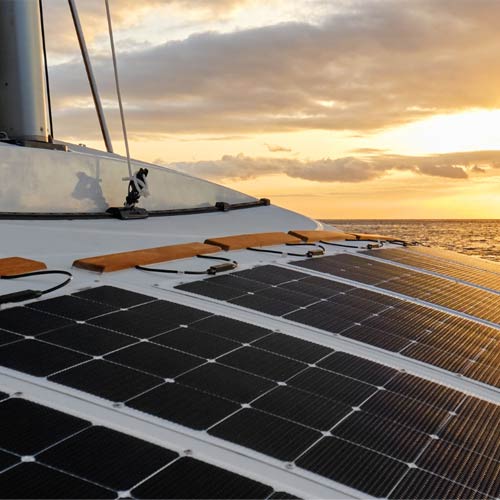 |
SOLAR PANELS and photovoltaic cellsSolar panels are the perfect alternative for producing electricity and energy. They're very transparent to use, generating no noise and keeping a low profile, while recharging batteries. So you'll always have battery power available for your electricity needs.
You can also choose between polycrystalline and monocrystalline solar panels.
|
CHARGE CONTROLLERS AND CONNECTING CABLESInstalling solar panels also requires the addition ofa charge controller. Its job is to protect the battery from the risk of overcharging or discharging. The MPPT (Maximum Power Point) charge controller monitors and controls the electricity produced by the solar panels to ensure that it is used efficiently and that the batteries are not overcharged. Depending on the type of controller, you'll be able to remotely view, via Bluetooth for example, the state of charge and other data relating to the production of electricity by your solar panel and battery installation. A charge controller is particularly useful when you're using several solar panels to power your boat. Indeed, when several panels are connected in parallel, they can produce a higher current than the batteries can withstand, which can cause damage and shorten their lifespan. Charge controllers allow you to limit the current to avoid these problems , but also to monitor the performance of your installation via PC or Smartphone via Bluetooth if your voltage regulator supports this function. In this category, you'll find a selection of charge controllers covering most sailors' needs. With some models, you can connect and manage several battery banks. This is particularly true of the BlueSolar PWM DUO 12/24V-20A. A wide range of connectors and cables are available on this page, not forgetting solar panel mounting devices. Our team of experts Comptoir Nautique is at your disposal to answer any technical questions you may have about choosing, installing or maintaining your solar panels, as well as questions about available stock, prices or delivery times. You can reach them by phone or e-mail. You can also take advantage of simplified payment in 3x & 4x or 10x & 12x. |
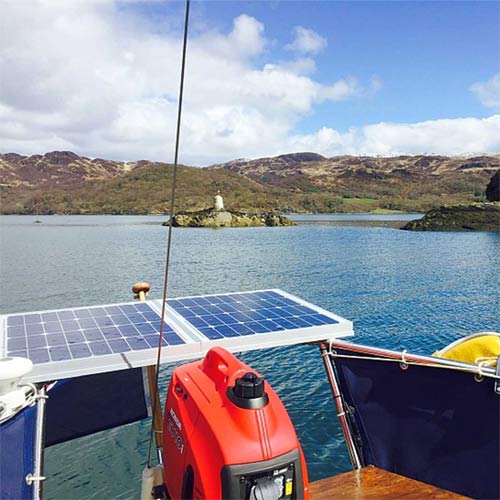 |
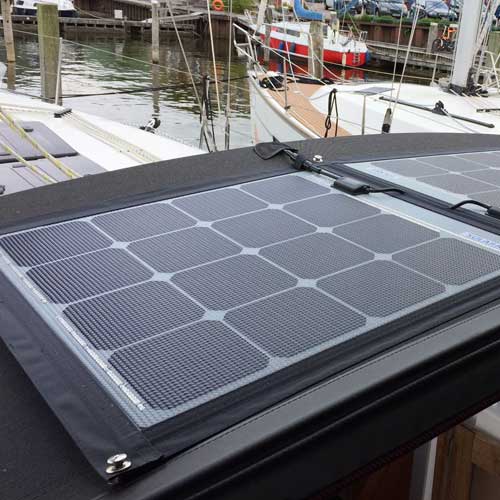 |
SOLAR PANEL OPERATION AND EFFICIENCYSolar panels for boats are devices used to generate electricity from solar energy when the boat is at sea. They are similar to the photovoltaic panels used on the roofs of houses, but are generally smaller and designed for use in a marine environment. When the photovoltaic cells inside the panel are exposed to sunlight, they convert solar energy into electricity, which is then stored in batteries for use when required. As mentioned above, there are two main types of solar panel for boats: rigid and flexible. Rigid solar panels consist of photovoltaic cells mounted on a rigid glass or plastic plate, while flexible solar panels are made from flexible photovoltaic cells mounted on a plastic or rubber support. Rigid solar panels are generally more efficient than flexible ones, but they are also heavier and more expensive. Flexible panels, on the other hand, are lighter and easier to install, but have lower efficiency. The efficiency of a solar panel for boats depends on several factors, such as the angle of incidence of the light, the air temperature and the efficiency of the photovoltaic cells used in the panel. The efficiency of a solar panel refers to the amount of energy it is capable of producing per unit area. In general, rigid solar panels have an efficiency of over 20%, while flexible panels have an efficiency of between 10 and 15%. This means that a photovoltaic panel produces around 15 to 20 watts of electricity per square meter. Performance varies from one type of solar panel to another. Find all our stock of solar panels of many brands (Victron, Solara, Activsol ...) at the best price on comptoirnautique.com |

